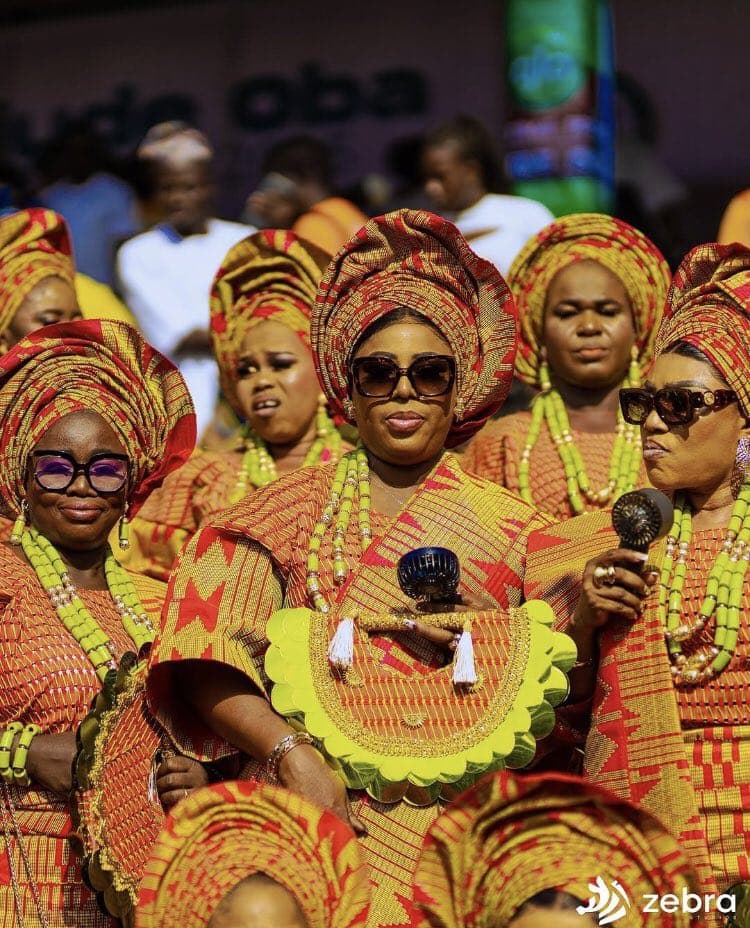THE ORIGIN AND SIGNIFICANCE OF OJUDE OBA FESTIVAL

A Celebration of Culture and Heritage
ORIGIN OF OJUDE OBA
Ojude Oba, which translates to "The King's Courtyard", is a traditional festival held in honor of the Awujale of Ijebu, the paramount ruler of the Ijebu people. The festival has its roots in the pre-colonial period and is deeply intertwined with the Yoruba culture. It is celebrated on the third day of the Islamic festival of Eid al-Adha, a day that is symbolic of sacrifice, prayer, and reflection within the Muslim community.
Historically, Ojude Oba began as a simple gathering of the Ijebu Muslim community who would visit the Awujale to offer prayers, gifts, and homage on Eid. Over time, the festival grew in scope and significance, eventually evolving into the grand cultural event that it is today a blend of Islamic and indigenous traditions, showcasing the richness of the Ijebu culture.
THE CULTURAL SIGNIFICANCE OF OJUDE OBA
Ojude Oba is more than just a festival it is a cultural institution that unites the people of Ijebu, Yoruba, and Nigerians at large. It serves as a platform for celebrating the cultural heritage of the Ijebu people, highlighting their customs, beliefs, and way of life.
1. Unity Among the Ijebu People
At its core, Ojude Oba fosters unity. People from all walks of life from the rich and powerful to everyday citizens gather in Ijebu Ode to celebrate their shared identity. The festival is a moment for solidarity, where family bonds and community ties are strengthened.
The Regberegbe groups, representing different families, demonstrate the collective spirit of the people. The pageantry, music, and dance bring together diverse generations, creating an intergenerational dialogue that bridges the gap between youth and elders, ensuring that cultural traditions are passed on.
2. A Celebration of Heritage and Modernity
Ojude Oba is also a celebration of how heritage and modernity can coexist. While the festival honors ancient Yoruba customs, it also embraces modern influences from the introduction of new fashion trends to the integration of social media in capturing the vibrancy of the festival. This blend of tradition and modernity reflects the dynamic nature of Yoruba culture, constantly evolving while remaining rooted in its past.
3. Religious and Cultural Convergence
The festival’s timing during Eid al-Adha emphasizes the convergence of Islamic and Yoruba traditional practices. Though rooted in the Islamic calendar, Ojude Oba has seamlessly integrated local customs, demonstrating the ability of the Ijebu people to harmonize their Islamic faith with their ancestral practices.
KEY ELEMENTS OF OJUDE OBA
1. The Royal Procession
The highlight of Ojude Oba is the royal procession, where groups of traditional riders (known as Regberegbe) dressed in elaborate, colorful attire parade in front of the Awujale. These groups, which often represent different families or clans within the Ijebu community, perform synchronized movements and honor the Awujale in a pageant of style, grace, and ancestral pride.
The Regberegbe groups, dressed in richly embroidered agbadas (traditional Yoruba robes) and adorned with beads, are often accompanied by horses, drummers, and dancers, creating an electrifying atmosphere of celebration. This procession is a vivid display of unity, ancestral honor, and cultural pride, reflecting the grandeur of the Yoruba Kingdom.
2. Fashion and Style
One of the most distinctive features of Ojude Oba is the fashion. The festival is a fashion forward event, where attendees wear their most extravagant outfits, often designed in the finest fabrics like aso-oke, lace, and damask. Men and women alike embrace the opportunity to showcase their heritage through bold styles, with the women often wearing elaborate gele head wraps and the men donning immaculate agbadas, often accessorized with beads and walking sticks.
The festival’s fashion is not just about clothing it’s a powerful visual symbol of prestige, wealth, and ancestral lineage. Each outfit tells a story, one of cultural pride and respect for the customs that have been passed down through generations.
3. The Role of the Awujale
The Awujale of Ijebu, the spiritual and political leader of the Ijebu Kingdom, plays a central role in the celebration of Ojude Oba. The king, dressed in his royal regalia, receives the homage of the people and offers blessings to the various groups. His presence is a reminder of the historical and cultural importance of the monarchy in preserving Yoruba traditions and customs.
The festival is not just a display of festivity but a reaffirmation of the king’s role as the custodian of tradition, culture, and community. The Awujale’s participation symbolizes unity and strength, and his involvement ensures the continuity of the Yoruba monarchy’s rich history.
Ojude Oba 2025 will undoubtedly be another chapter in a long tradition of cultural celebration and community cohesion. It remains a vibrant testament to the enduring legacy of the Ijebu people, showcasing their resilience, traditions, and shared history.
For those fortunate enough to witness it, Ojude Oba is more than just a festival it is an immersion into the heart of Yoruba culture, a dazzling celebration of life, unity, and heritage. Whether through the royal procession, the elaborate fashion, or the spiritual blessings, Ojude Oba continues to captivate the soul of Nigeria, leaving an indelible mark on all who partake in its magic.